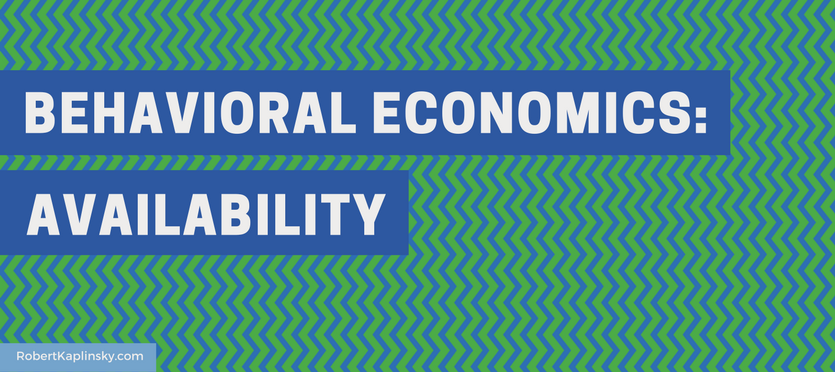NOTE: This is one of a series of ten blog posts on cognitive biases that have applications in education.
Sometimes people don’t take a concern as seriously as they should because they haven’t had to deal with the issue for some time. Consider Southern California where major earthquakes are always a real possibility. As of 2015, there hasn’t been a major earthquake in the area in over twenty years. Yet the chance of a sizable earthquake occurring is still very high. According to the Southern California Earthquake Center, the “chance of having one or more magnitude 6.7 or larger earthquakes in California over the next 30 years is 99.7%.” So, even though people should be preparing for this eventual disaster, too few do.
What is interesting though is what happens in Southern California after a major earthquake hits elsewhere in the world. Even though the shaking can’t be felt where they live, residents are reminded of how devastating earthquakes can be and prepare more. The reality is that the probability of there being an earthquake where they live has not changed much, yet the reminder about earthquakes affects the way they prioritize their decisions.
If teachers are not as worried as they should be, remind them about a similar situation where things didn’t go well. For example, “A few years we stopped using common formative assessments for a semester and it was very challenging because we were all in different places and weren’t able to talk about the same topics. I think if we stop using them again, the same thing might happen.”
If you want to increase teachers’ confidence when it is not as high as it should be, remind them of a similar situation where things did go well. For example, “Do you remember how the last time we adopted a new textbook it also felt overwhelming? The first months were rough but by the end of the year we had found our way. I believe this will be similar.”
As teachers we can help students account for the availability bias by making them more or less concerned, as needed. For example:
- “Don’t forget what happened last time we had our final. Several of you thought that you could take it without studying and your grade wound up suffering. Let’s not make that mistake again.”
- “I realize that some of you may be feeling nervous about the upcoming state testing. Remember that you have been taking tests like these for years. It may be hard but you always get through it and I often hear that it went easier than you expected.”
Where else are people more or less concerned than they should be? How can we account for the availability bias in those situations?

